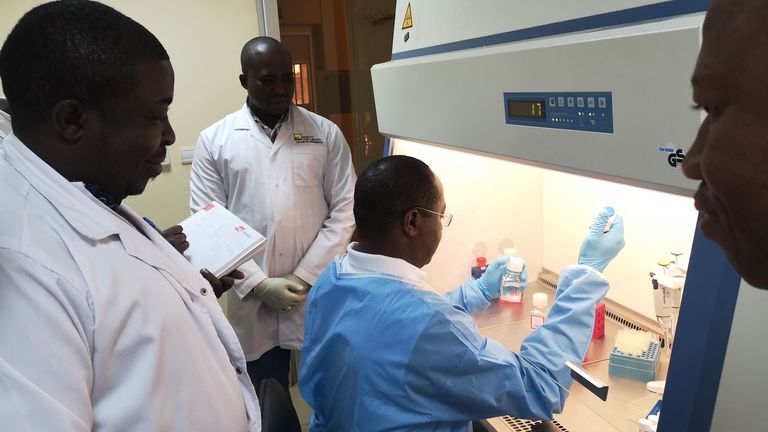New malaria vaccine developed by UK scientists ‘could cut deaths by 70%’
A new vaccine could reduce deaths from malaria by 70% by 2030, according to British scientists who developed it.

A new vaccine could reduce deaths from malaria by 70% by 2030, according to British scientists who developed it.
The prediction was made after clinical trials in Africa showed the vaccine, called R21/Matrix-M, was highly effective at protecting children, who bear the brunt of the mosquito-borne disease.
Results will be filed with the World Health Organisation later this month and a manufacturer has already been lined up to produce 200 million doses a year. They could cost less than £5 each.
Professor Adrian Hill, director of the Jenner Institute at the University of Oxford, who led the research, said: “This is really exciting.
“People have been trying to make malaria vaccines for over a century. Around 140 different malaria vaccines have gone into arms.
“We think these data are the best yet of any malaria vaccine.”
More than 40 million children live in areas of sub-Saharan Africa with high or moderate malaria transmission.
One child under the age of five dies from the disease every 75 seconds, despite the use of bed nets, preventative drugs and insecticide sprays.
How the trial was administered
In the new trial, published in Lancet Infectious Diseases, researchers gave three doses four weeks apart, with a booster after 12 months, to 409 young children in Burkina Faso.
Results a year later showed that it prevented 80% of malaria cases.
The only alternative malaria vaccine, made by GlaxoSmithKline, is 44% effective over one year, the researchers say.
“We vaccinated just before the peak of the malaria season, so that contributes a bit (to the difference),” said Prof Hill.
“But we also believe our vaccine is better and more effective.”
Full data, including results from an as-yet unpublished study of 4,800 children in four African countries, will be submitted to the World Health Organisation later this month.
Read more: Use of mosquito nets in malaria-prone countries helps children reach adulthood
A licence to distribute the vaccine could follow as soon as early next year.
The world’s largest vaccine manufacturer, the Serum Institute of India, has agreed to make 200 million doses a year, starting next year.
Prof Hill said: “We want to add a malaria vaccine on top of bed nets, on top of spraying, on top of drug preventive treatment.
“If we can do that at a grand scale we really could be looking at a substantial reduction in the burden of malaria deaths and disease – by 2030 maybe a 70% reduction in deaths.”
But scientists warned the benefits of the vaccine may not be realised if richer nations waver in their funding for malaria controls. The UK and United States have in the past been major contributors.
Malaria fight ‘at a crossroads’
Prof Azra Ghani, chair in infectious disease epidemiology at Imperial College London, said: “These results come at a time at which the fight against malaria is at a crossroads.
“With the right investment – notably continued support for The Global Fund to Fight AIDS, TB and Malaria at their upcoming replenishment conference later this month – we can reverse recent trends and continue on the path to elimination of malaria.
“Without this investment, we risk losing the gains that have been made over the last decades and witnessing a rising tide of malaria resurgence.”



